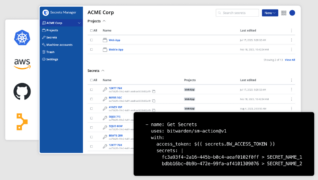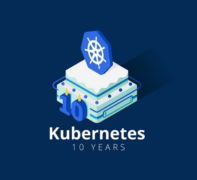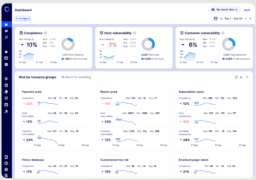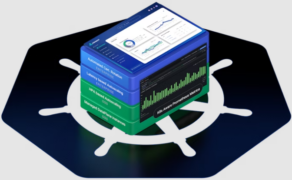Topic: kubernetes
Mastering Day 2: Optimizing Kubernetes health and performance
Mastering Kubernetes health and performance goes beyond the initial setup. The real challenge starts on Day 2, where operations teams must engage in a continuous cycle of monitoring, identifying, and resolving issues before they disrupt operations. This involves addressing two types of issues: critical real-time problems that can lead to immediate downtime, and ongoing reliability … continue reading
KTE – ITOps Times Open Source Project of the Week
KTE is an open source Kubernetes testing environment for the major cloud providers’ Kubernetes services: Amazon Elastic Kubernetes Service (EKS), Google Kubernetes Engine (GKE), and Azure Kubernetes Service (AKS). It provides a safe and controlled space for discovering issues and vulnerabilities in Kubernetes configurations before they make it to production. KTE allows for the simulation … continue reading
Kubernetes v1.31 released; 11 new features now in GA
Some 11 features have graduated to stable in today’s release of Kubernetes v1.31, the first since the project celebrated its 10th anniversary this year. The release’s theme, here in the dog days of summer, is Elli, a playful pup meant to reflect the spirit and joy of the community of contributors. Among the highlights of … continue reading
Bitwarden brings its secrets manager to Kubernetes
Password manager Bitwarden has announced it is beginning to integrate its Secrets Manager into Kubernetes workflows. This functionality is currently in public beta and will enable DevOps teams to securely manage secrets like API keys, passwords, and tokens across their Kubernetes environment. The integration is done via an operator that is deployed by the Helm … continue reading
Kubernetes at 10: Where it began, and where it’s going
Ten years ago, the Kubernetes project was first announced, and then soon after, the Cloud Native Computing Foundation (CNCF) was formed to become the home for it. Chris Aniszczyk was the founding executive director at the time, and has been around for the project’s entire history once it was donated by Google to the CNCF. … continue reading
Kubernetes – ITOps Times Open Source Project of the Week
When we first started the ITOps Open Source Project of the Week series, Kubernetes was already such a large and popular project that no one needed us to tell them about it, so it’s never actually been featured in this series. But given that the project is celebrating its 10 year anniversary this month, we … continue reading
K0smotron 1.0 adds support for several Cluster API features
Mirantis, a Kubernetes-based infrastructure provider, has announced the release of version 1.0 of its open-source project k0smotron, which is a tool for managing Kubernetes control planes. K0smotron 1.0 adds support for Cluster API for remote machines that are connected via SSH. Cluster API is a Kubernetes sub-project that provides declarative APIs for simplifying provisioning, upgrading, … continue reading
ITOps Times Open-Source Project of the Week: Kube-OVN
Kube-OVN is an open-source project attempting to bring the benefits of SDN to the cloud-native era. “If you miss the rich networking capabilities of the SDN age but are struggling to find them in the cloud-native age, Kube-OVN should be your best choice,” the project maintainers say. It has a number of key features, including … continue reading
ITOps Times Open-Source Project of the Week: Eraser
Eraser is an open source tool for cleaning up unused Kubernetes images in a cluster. “When deploying to Kubernetes, it’s common for pipelines to build and push images to a cluster, but it’s much less common for these images to be cleaned up. This can lead to accumulating bloat on the disk, and a host … continue reading
Kubernetes 1.30 is now available
The Kubernetes release team has announced that Kubernetes 1.30 is now available. It includes 45 enhancements; 17 are Stable, 18 are in Beta, and 10 are in Alpha. One of the stable features in this release is that the volume manager has been updated to allow the kubelet to populate information about how existing volumes … continue reading
Lacework launches new capabilities for securing cloud environments
The security company Lacework has announced the addition of new capabilities to its platform to help IT and security teams more easily secure their cloud environments. The first new addition is Lacework Explorer, which is designed to provide better visibility into potential threats. It provides a visualization of the relationships between cloud resources, which helps … continue reading
ITOps Times Open-Source Project of the Week: Kong Gateway Operator
Earlier this week at KubeCon + CloudNativeCon Europe 2024, Kong announced it would be open sourcing the Kong Gateway Operator (KGO) with the latest release, 1.2. With this release, all the previously released features of KGO are now open source, and new features were also added, such as managed gateways, HPA-based gateway autoscaling, and AI … continue reading















